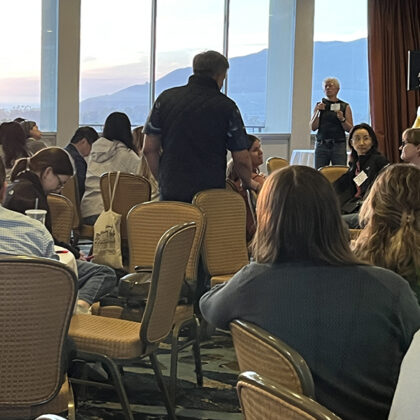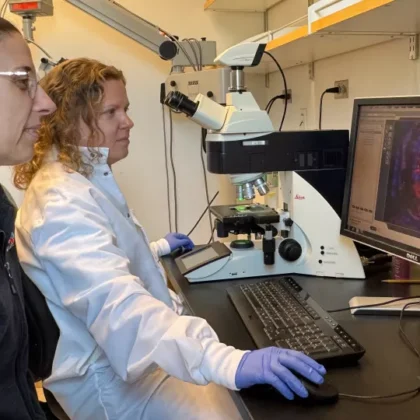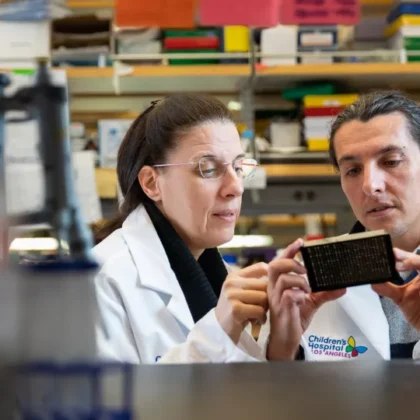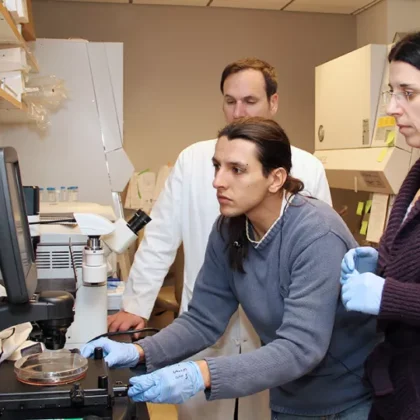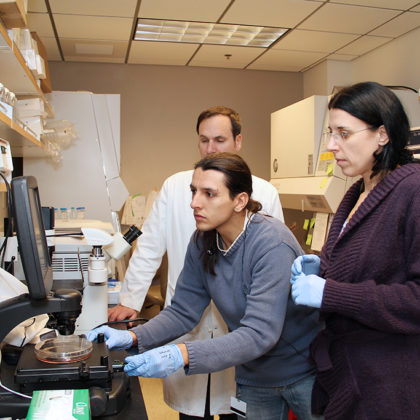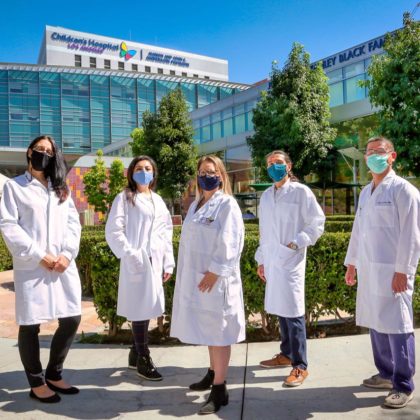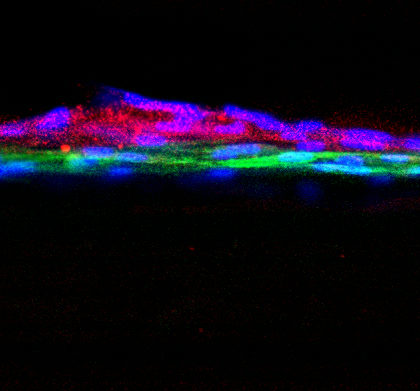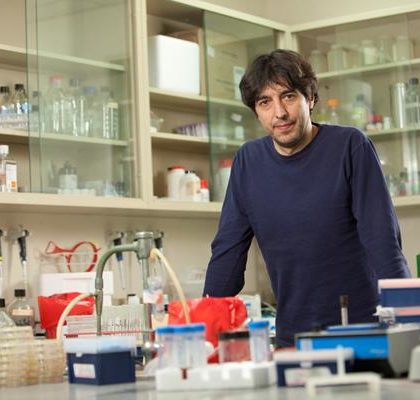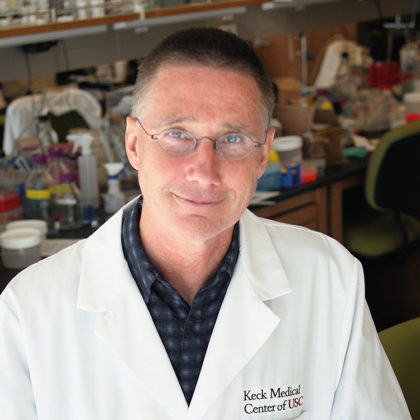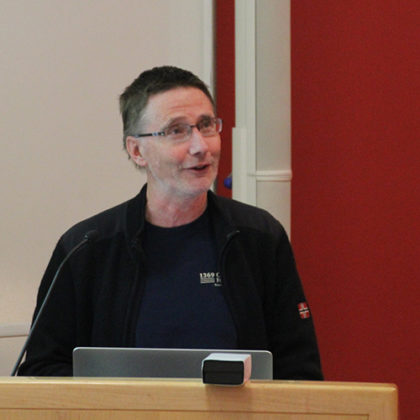Stories
Guided by COMPASS, USC undergraduates navigate stem cell research at inaugural symposium
Thirty undergraduates gathered to share their research at the first year-end symposium for USC CIRM COMPASS, a comprehensive two-year program designed to prepare juniors and seniors for careers in stem cell biology …
Getting lost in translation—the clinical kind—at USC’s stem cell retreat
At the retreat for USC’s Department of Stem Cell Biology and Regenerative Medicine, newly appointed leader Chuck Murry shared a vision as sweeping as the panoramic view of the Pacific Ocean from …
Fasting-mimicking diet restores kidney function in study
Diet intervention revives kidney function in preclinical animal models and in patients with chronic kidney disease. In patients with chronic kidney disease, the loss of podocytes—part of the kidney’s glomerular filtration barrier—causes …
Study offers new insights into how the most common kidney cancer starts in kids
Researchers at Children’s Hospital Los Angeles found new clues to how disruption of the early process of kidney formation may be linked to the development of Wilms tumor — also known as …
Podocyte protectors: NIH awards CHLA’s GOFARR Laboratory additional grants to combat chronic childhood kidney disease
In children with progressive chronic kidney disease (CKD), loss of kidney function is for the most part irreversible. “The glomerulus is where the kidney filters the blood,” says Laura Perin, PhD, co-Director …
Children’s Hospital Los Angeles receives NIH awards for research into combating childhood kidney failure
In children with progressive chronic kidney disease (CKD), loss of kidney function is mostly irreversible. The GOFARR Laboratory for Organ Regenerative Research and Cell Therapeutics in Urology at Children’s Hospital Los Angeles …
A bench-to-bedside approach to Wilms tumor
Stefano Da Sacco, PhD, calls Wilms tumor “an underdog” in the research world. “If you go to the American Urological Association or other meetings, there aren’t many presentations or discussions about Wilms …
CHLA scientists develop first physiologically-accurate in vitro model of the human kidney glomerulus
Story courtesy of Children’s Hospital Los Angeles Kidneys work to constantly filter blood and remove toxins from the body. Conditions such as chronic kidney disease (CKD) are characterized by a reduced ability …
New cellular approach found to control progression of chronic kidney disease
Researchers have demonstrated for the first time that extracellular vesicles—tiny protein-filled structures—isolated from amniotic fluid stem cells (AFSCs) can be used to effectively slow the progression of kidney damage in mice with …
Fasting-mimicking diet may reverse diabetes in mice
By Beth Newcomb A diet designed to imitate the effects of fasting appears to reverse diabetes, a new USC-led study shows. The fasting-like diet promotes the growth of new insulin-producing pancreatic cells …
Andy McMahon and USC Stem Cell: From discoveries to cures
Video by Little Pictures How do fingers become fingers and not toes? How does the brain generate the correct number of neurons? How do the kidneys branch into the complex and elegant …
Stem cells prove their potency at CHLA annual symposium
The Saban Research Institute of Children’s Hospital Los Angeles Annual Symposium, held on Feb. 21, focused on the promise of regenerative medicine and cellular therapies — from curing HIV to building organs …
Keck School researchers to speak at World Stem Cell Summit
Faculty researchers and clinicians from the Keck School of Medicine of USC are among more than 170 speakers who will discuss their efforts to zero in on disease cures at an international …


